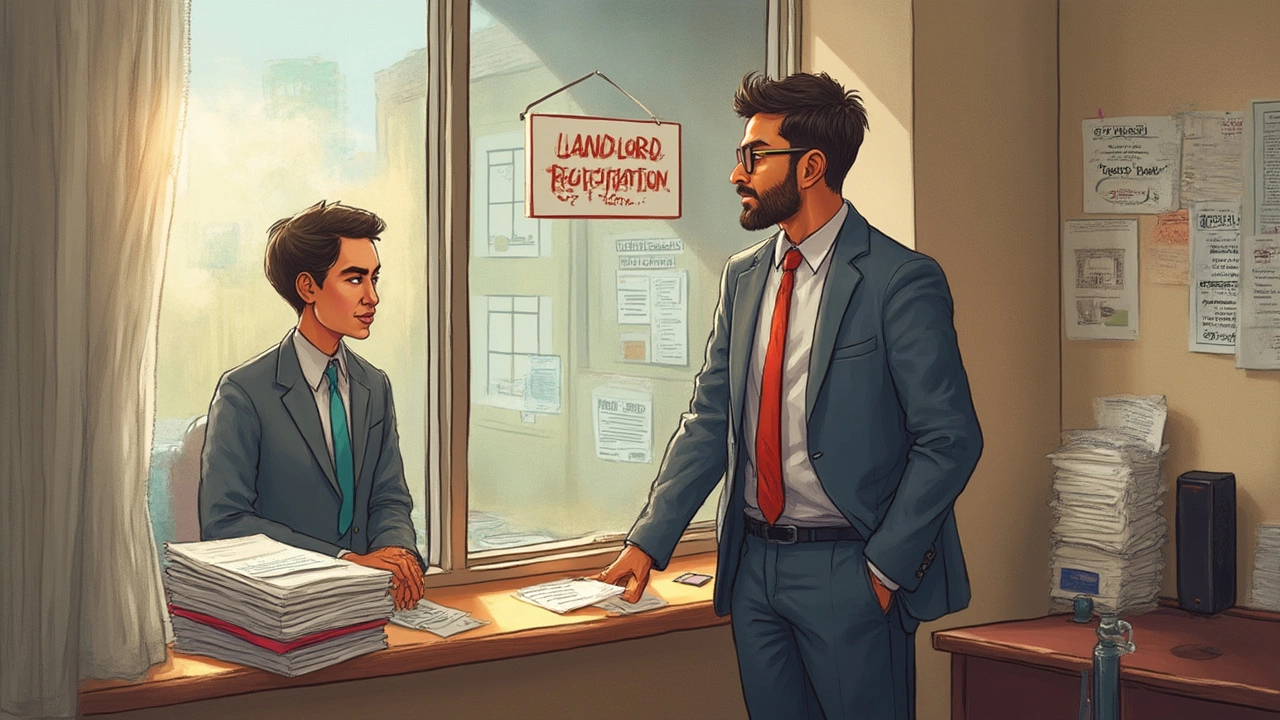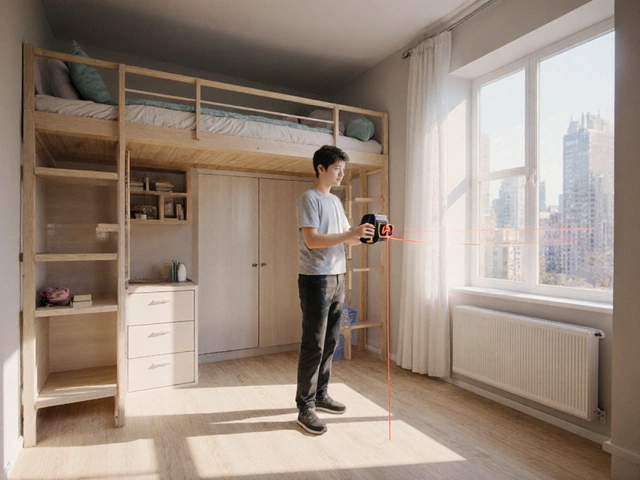Maryland Landlord Registration: What Every Rental Property Owner Needs to Know

Picture this: you're sitting at your kitchen table, coffee in hand, thinking about turning your basement into a rental or leasing your parents’ old house. Then, someone asks, “Did you register as a landlord?” Wait—do you really have to? It’s not just about printing a lease and collecting rent; Maryland wants a say in this, too. Skip the legal fine print and let’s break down what's really required if you want to rent out property in the Old Line State. It’s surprisingly easy to trip up if you miss even one rule, and the headaches (and fines) can pile up quickly.
Who Needs to Register as a Landlord in Maryland?
Let’s get straight to the big question: Do you have to register as a landlord in Maryland? For a lot of folks, the answer is yes—especially if you own one or more rental properties. Maryland’s rental laws aren’t “one size fits all.” Here’s what’s wild: the rules change depending on whether your property is in Baltimore City, Montgomery County, or somewhere rural.
Statewide, the Maryland Department of the Environment (MDE) demands registration for any property built before 1978 that's rented or offered for rent. Why so specific? Lead paint. Maryland’s not messing around with tenants’ health, so they require all pre-1978 properties—even single-family homes, townhouses, and apartments—to be registered annually.
On top of the state rules, counties and cities can have their own requirements. For example:
- Baltimore City: Every rental unit, no matter when it was built, must be registered and inspected—even your garage apartment or tiny in-law suite.
- Montgomery County: Most rental units need to be licensed, and there are strict tenant safety checks.
- Prince George’s County: Registration is the norm, and officials actually inspect rentals regularly.
But if your property is in a rural area or in a newer subdivision, you might be off the hook for city or county registration. But don’t get too comfy—if your place is old enough to have that charming peeling paint, MDE still wants to see the paperwork, regardless of location. If you’re not sure whether you need to register, there’s no shame in calling city hall or jumping onto the official county website. Don’t guess—getting it wrong is expensive, and they rarely take “I didn’t know” as an excuse.
Here’s a quick snapshot to see how different areas treat landlord registration in Maryland:
| Jurisdiction | Registration Required? | Special Notes |
|---|---|---|
| Baltimore City | Yes | All rentals, annual inspection |
| Montgomery County | Yes | Many units, safety standards enforced |
| Howard County | Limited | Focus on multi-family |
| Statewide (built before 1978) | Yes | Applies everywhere per MDE |
How Does the Maryland Registration Process Work?
Okay, so let’s say you’ve figured out you have to register—either by state law or because your city/county said so. What happens next? The steps sound easy, but there’s more involved than whipping out a pen.
First things first: you gather the right info. For state lead paint registration through MDE, you’ll fill out a rental property registration form. That means listing every address, property owner names, and for each unit—when it was built and if you’ve had it inspected for lead paint.
Annual registration isn’t free. As of 2025, MDE charges $30 per unit per year. This might seem like no big deal if you only have one rental, but if you’re managing a handful, it adds up—fast. On the city and county side, registration fees can range anywhere from $25 to sometimes over $100 per property, depending on where you live.
But here’s the catch: some localities want proof of safety inspections before you’re considered fully registered. That could mean scheduling a city inspector to check smoke detectors, carbon monoxide alarms, windows, and railings. In Baltimore City, for example, an inspection checklist runs more than two dozen safety points. If you don’t pass, you don’t get registered. Period.
Lost your registration paperwork? Most cities and the state now handle this online, so you can track everything or reprint your forms without hunting through dusty file cabinets. Keep digital copies and set annual reminders to renew. Missing a deadline can cost you hundreds in late fees or even legal headaches if your tenant learns you’re unregistered.
Here’s a handy breakdown of steps to register:
- Review your property’s age and location to decide which registration applies—state, local, or both.
- Have your property inspected (if required)—lead paint for older homes, or city safety for others.
- Collect all necessary info: owner name, contact info, tenant info, build year, inspection certificates.
- File your application—online is fastest, but paper forms are usually accepted too.
- Pay the fee. Don’t miss this—it’s not official without it.
- Save your receipts, inspection reports, and registration confirmation somewhere you won’t misplace them.
Slip up at any step, and you’re risking fines, headache, or, in rare but true cases, being ordered to clear out your tenant until you’re compliant. Baltimore has done this before, especially if housing inspectors get reports about your property. Not a fun day for anyone—including the folks living there.

Exceptions, Loopholes, and Surprises for Maryland Landlords
So what if you’re renting to a family member? Or maybe you only want to rent for a single summer—does that count? Maryland’s laws do carve out a few exceptions, but not as many as some landlords think.
First up, if you’re actually living in the property and only renting out a room or two (like sharing the house with a roommate), some local governments don’t consider you a landlord, so you might dodge registration. But be careful: if you start hosting short-term guests for pay, like Airbnb, you’re down a whole other regulatory rabbit hole—sometimes with its own kind of permit.
Some smaller municipalities don’t require landlord registration for single-family houses or owner-occupied units. But state lead paint registration is ruthless if your property is from before 1978. Doesn’t matter if your tenant is your best friend or your cousin—if someone is paying you rent and living there, state law says you must register.
Think about gifted or inherited property: even if you barely consider yourself a landlord (like if you’re just holding onto your childhood home and renting it while you decide what to do), rules still apply. There’s been a noticeable rise in complaints from neighbors who spot “shadow rentals” (unregistered, uninspected houses) and report them to code enforcement. In 2024 alone, Baltimore City flagged over 900 units for failing inspection or skipping registration. Multiply that by similar crackdowns statewide and you see why the process is more than routine paperwork.
Landlords sometimes hope that “just this once” means nobody notices. But tenants in Maryland are growing savvy—they can look up whether your *strong*Maryland landlord registration*strong* is current. If there’s ever a dispute (say, over a security deposit or repairs), tenants with a good lawyer can blow up your world by exposing lapses in registration. Fines can reach $500 per violation in some cities, and you might have to refund past rent if you weren’t properly registered.
Tip: Don’t assume your property is off the hook just because you manage it yourself. Even accidental landlords—people who “fell into” renting—get slapped with fines as often as pros. No matter who you are, if someone pays you rent, odds are the government wants in on the action.
Insider Tips for Smooth Landlord Registration in Maryland
Don’t let red tape scare you off. Getting landlord registration right is all about preparation and staying organized. Here are some tried-and-true hacks, learned the hard way (I have a folder that even Holly can find if I’m not home):
- Create a digital calendar reminder for every renewal date and inspection. Most missed deadlines aren’t due to laziness but simple forgetfulness.
- Keep extra copies of inspection forms, receipts, and emails from the city in an online folder, not just your kitchen junk drawer.
- Schedule your inspection early—especially in spring and summer. City inspectors get swamped before school lets out, and labor shortages in some counties mean you could wait weeks for an appointment.
- If you failed an inspection, ask for a detailed list of corrections, then snap your own photos as proof when you fix anything.
- When in doubt, call your local office directly. They’ve heard every question and would rather you check now than pay fines later.
- Don’t rely only on what your neighbor or an online forum says. Laws change fast. Always double-check on official state or city sites.
- If you inherit a rental, ask the prior owner or their estate agent for all registration and inspection history. Missing paperwork causes endless headaches, trust me.
- If you have a property manager, make sure your contract says they’re responsible for registration and can show you receipts. If not, the city sees you as the responsible party.
One last thing: don’t ignore letters from the city or state. Those “gentle reminders” often come with deadlines, and the later ones are a lot less friendly. Plus, rental registration isn’t just a rule to trip up landlords—it actually protects you if tenants claim stuff wasn’t up to code. A clean inspection means you’ve got backup come dispute time.
The landlord game in Maryland is a little bit paperwork, a little bit hustle, and a lot of double-checking—just how the state likes it. Figure out what’s needed upfront, stay on top of renewals, and run your rentals like a pro, even if it’s your first time around.







Write a comment